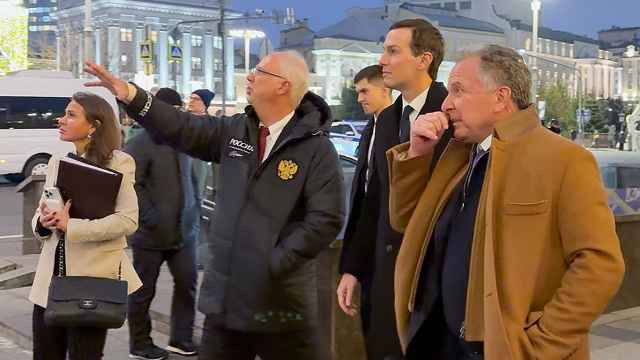Russia's 12-year oil boom is nearing its peak, forcing the next president to decide whether to cut taxes and revive production or use the windfall from $100 oil to boost public spending and quell mounting unrest.
As Vladimir Putin campaigns for a second stint in the Kremlin, the nation's existing fields are losing pressure and oil companies Rosneft, LUKoil and TNK-BP say production taxes give little incentive to invest. Since Putin first became president in 2000, crude output has grown 57 percent to 10 million barrels per day, surpassing Saudi Arabia and flooding the state treasury.
"The cream has been skimmed off the top," said Leonid Fedun, the billionaire deputy chief executive of LUKoil, Russia's second-largest oil company. "Further steps require taxes based on different principles," or production will start falling within three years, he said.
Any cuts in the oil and gas industry's 5.7 trillion rubles ($190 billion) in taxes mean less cash to combat the biggest anti-government protests since the 1990s. Deputy Energy Minister Sergei Kudryashov said Feb. 2 that the need to strike a balance between revenue and oil output levels is one of the most difficult questions facing the state.
"Being the world's largest energy producer keeps Russia at the top table of global politics, that's why it is non-negotiable," said Chris Weafer, chief strategist at Troika Dialog. "While a lot of rhetoric will be about reform and diversification, maintaining oil output is so important that it doesn't have to be stated."
The oil and gas industry accounted for almost 50 percent of the state's income in 2011, and Rosneft's tax bill last year ran to about half of its $92 billion revenue.
Russia's Soviet-era Siberian fields are maturing, and producers face eroding profitability related to the higher cost of maintaining output. Crude extraction in the Khanty Mansiisk autonomous district in western Siberia, which began in 1964 and now contributes roughly half of Russia's oil, fell 1.7 percent in 2010, according to the regional government's website.
The prospect of decline can be seen on the Moscow stock exchange. Rosneft, the state-controlled company that's the biggest oil producer, dropped 17 percent in Moscow trading over the past year, a time when crude prices gained 13 percent to about $120 a barrel. The company was downgraded at Goldman Sachs Group, Citigroup, Deutsche Bank and Troika Dialog this year on concern capital spending is rising on fields and refineries as production stalls.
"We have difficulty finding catalysts for the stocks amid elevated capex levels," analysts at Troika said. LUKoil slid 4.3 percent during the past year, while TNK-BP gained 3.2 percent.
Oil producers want tax breaks to boost returns from bringing new fields on line and spending on existing deposits. Rosneft has pushed for tax breaks before deciding to develop the Yurubcheno-Takhomskogo site in eastern Siberia. Gazprom Neft has threatened to slow work on three remote fields because of taxes.
Without tax holidays five years ago, Russia would already be in decline, LUKoil's Fedun said.
Russia used windfall revenue to build two oil funds to more than $225 billion in December 2008, cash Putin used to bail out the banking industry during the global credit crunch and fund deficits that grew from increased spending on weapons, pensions and railways.
Putin is unlikely to receive a second oil windfall. Reserves in the two funds dropped to $150 billion at the end of January.
"Two to three percentage points of our annual growth used to come from the oil and gas sector," then-Finance Minister Alexei Kudrin said during a meeting with members of Putin's All-Russia People's Front in June. "That's just gone now."
Russia's strategy to keep output above 10 million bpd for the next decade will initially depend on its ability to increase the amount recovered from existing fields, Kudryashov said. No major projects are scheduled to come on stream in the next four to five years, he said.
After that, Russia is pinning its hopes on the development of untapped deposits in eastern Siberia and the Arctic. The state will create a special regime for its offshore deposits, Kudryashov said.
Reductions in tax rates on crude exports, introduced last year, which increased profitability of mature deposits, have helped. Producers' ability to slow decline rates at older fields underpinned Russia's surprise record output last year, Troika Dialog wrote in a research note on Jan. 10. The bank expects the trend to continue and forecasts marginal output growth this year to 10.4 million bpd.
It may be difficult for companies to sustain this without accelerating developments, said Alexei Kokin, an analyst at UralSib Financial.
Forecasts for a plateau in oil production around current levels for the next decade "may be a bit optimistic," Kokin said. "All the risks are to the downside."
A Message from The Moscow Times:
Dear readers,
We are facing unprecedented challenges. Russia's Prosecutor General's Office has designated The Moscow Times as an "undesirable" organization, criminalizing our work and putting our staff at risk of prosecution. This follows our earlier unjust labeling as a "foreign agent."
These actions are direct attempts to silence independent journalism in Russia. The authorities claim our work "discredits the decisions of the Russian leadership." We see things differently: we strive to provide accurate, unbiased reporting on Russia.
We, the journalists of The Moscow Times, refuse to be silenced. But to continue our work, we need your help.
Your support, no matter how small, makes a world of difference. If you can, please support us monthly starting from just $2. It's quick to set up, and every contribution makes a significant impact.
By supporting The Moscow Times, you're defending open, independent journalism in the face of repression. Thank you for standing with us.
Remind me later.





